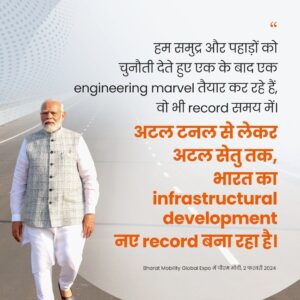I would like to start by saying how very pleased I am that we are here in New Delhi for our 90th General
Assembly, especially as this coincides with India’s celebrations of 75 years of independence.
I would like to thank the Indian government, and particularly the Central Bureau of Investigation for
hosting this important event which brings ministers, police chiefs and senior law enforcement officials
together under one roof.
My personal thanks to CBI Special Director and INTERPOL Executive Committee Delegate for Asia Mr
Sinha – thank you for the wonderful hospitality we have experienced so far, which has set the scene for
what I am sure will be an extremely successful General Assembly.
Over the coming days, we will be addressing a range of global security issues and how these can be
addressed through the unique platform which is INTERPOL.
It was to gain a better view of the threats faced by law enforcement that we have produced the first
INTERPOL Global Crime Trend Report, which will be present to our membership during this General
Assembly.
Among the most significant trends is the increasing influence of organized crime groups both in the
physical world with associated increased violence, and the virtual world with cybercrime causing a
massive economic and social impact on governments, businesses and individuals worldwide.

Hospitals and businesses held hostage by ransomware, people’s life savings stolen in romance scams.
Organized crime networks are making billions of dollars, and the fact that less than one per cent of
global illicit financial flows are intercepted and recovered – or rather, nearly 99 per cent of stolen assets
remain in criminal hands – should be of greater concern to everyone.
Combined with estimates of the global cost of cybercrime which is expected to reach 10.5 trillion US
dollars by 2025, brings us to the basics of policing – follow the money.
INTERPOL has developed its global stop-payment mechanism, the Anti-Money Laundering Rapid
Response Protocol, which in the past 10 months alone has helped member countries recover more than
60 million dollars in criminal proceeds from cyber enabled fraud.
Our Global Crime Trend Report also highlighted the massive increase in online child sexual exploitation
and abuse, figures which are only set to increase.
We know that cybercrime and online child abuse are significantly under reported, often because victims
are ashamed or in cases of fraud, embarrassed, which means that the figures we see are just the tip of
the ice berg.
This is why we have a number of resolutions at this General Assembly encouraging greater action by
member countries to use INTERPOL resources in combating these crimes.
Police around the world are overwhelmed with data, and too often they do not have the capacity to
deal with the volume of cases – and here INTERPOL is uniquely placed to provide the support they need.
Today, with the click of a button, police anywhere in the world can instantly check against INTERPOL’s
19 global databases containing 126 million records including DNA profiles and facial recognition images.

Our databases are checked more than 20 million times each day – which equates to around 250
searches per second.
Our International Child Sexual Exploitation database helps investigators around the world identify an
average of seven child abuse victims – every single day.
This is why I was delighted when earlier this year India connected to this specialized database, and has
already seen significant results from being part of this global network. To date ICSE has helped member
countries identify more than 30,000 victims worldwide, imagine what could be achieved if more
countries follow India’s example.
Indeed India plays extremely active role in a range of global operations coordinated by INTERPOL.
For example in the recent Operation Lionfish targeting drug trafficking, when Indian authorities made
the largest single seizure of heroin during the operation intercepting 75kg of the drug.
INTERPOL is uniquely positioned to help countries address these crime threats, as well as locate and
arrest the criminals behind them, notably through Red Notices.
There is some confusion over what a Red Notice is, and more importantly, what it is not.
A Red Notice is not an international arrest warrant, and INTERPOL cannot force any member country to
arrest an individual who is the subject of a Red Notice.
It is not for INTERPOL to judge the merit of a case or a decision taken by national courts – that is a
sovereign matter.
Our role is to assess if a request for a Red Notice is in line with our Constitution and Rules.
This means that we cannot accept a request if, for example, it is political, military, religious or racial in
character, or is not in accordance with our Rules on the Processing of Data.
While we understand that the decision not to publish a Red Notice may not be welcomed by a member
country, part of the power of Red Notices is in the trust of our membership that we implement the same
rules when assessing any request from every country.
INTERPOL’s neutrality and independence is essential, and this is why as Secretary General I am
committed to ensuring we remain an essential and dependable part – indeed the backbone – of the
global security architecture.
This is especially important as next year we will be celebrating INTERPOL’s centenary. An opportunity to
not only look back at what we have achieved, but more importantly to identify how we can remain at
the forefront of international police cooperation for the next 100 years and beyond.
This General Assembly here in New Delhi is an important step towards our centenary celebrations.











More Stories
Recognizing the contribution of CPSEs towards fulfilling the mandate under Public Procurement Policy of Government of India.
हम समुद्र और पहाड़ों को चुनौती देते हुए एक के बाद एक engineering marvel तैयार कर रहे हैं, वो भी record समय में: Narendra modi
25th year of Bharat Rang Mahotsav 2024